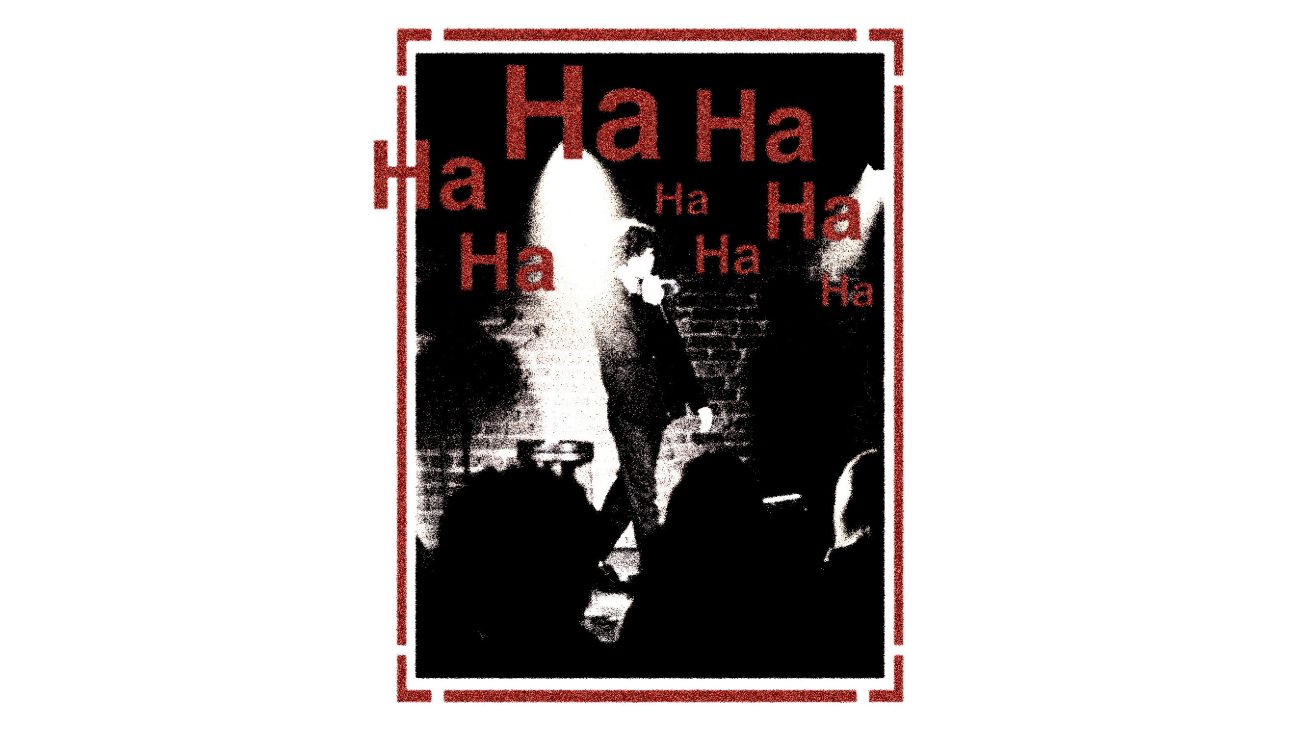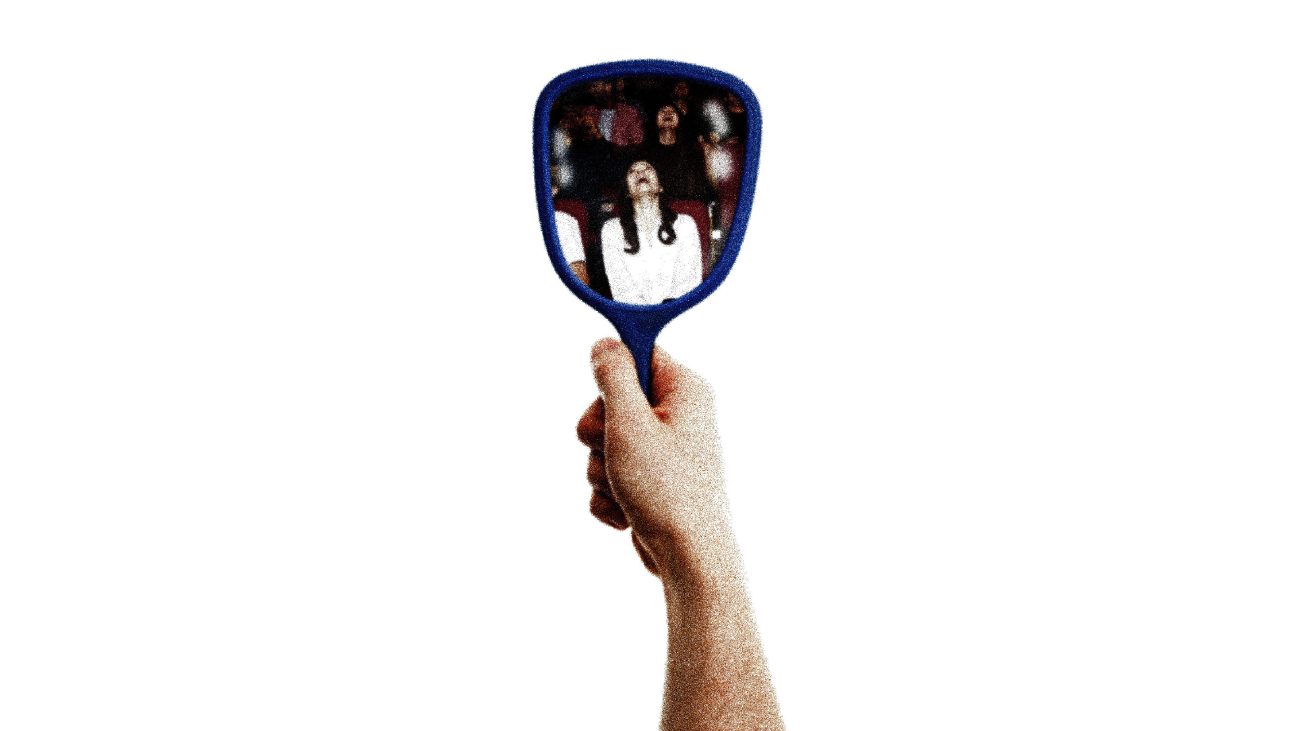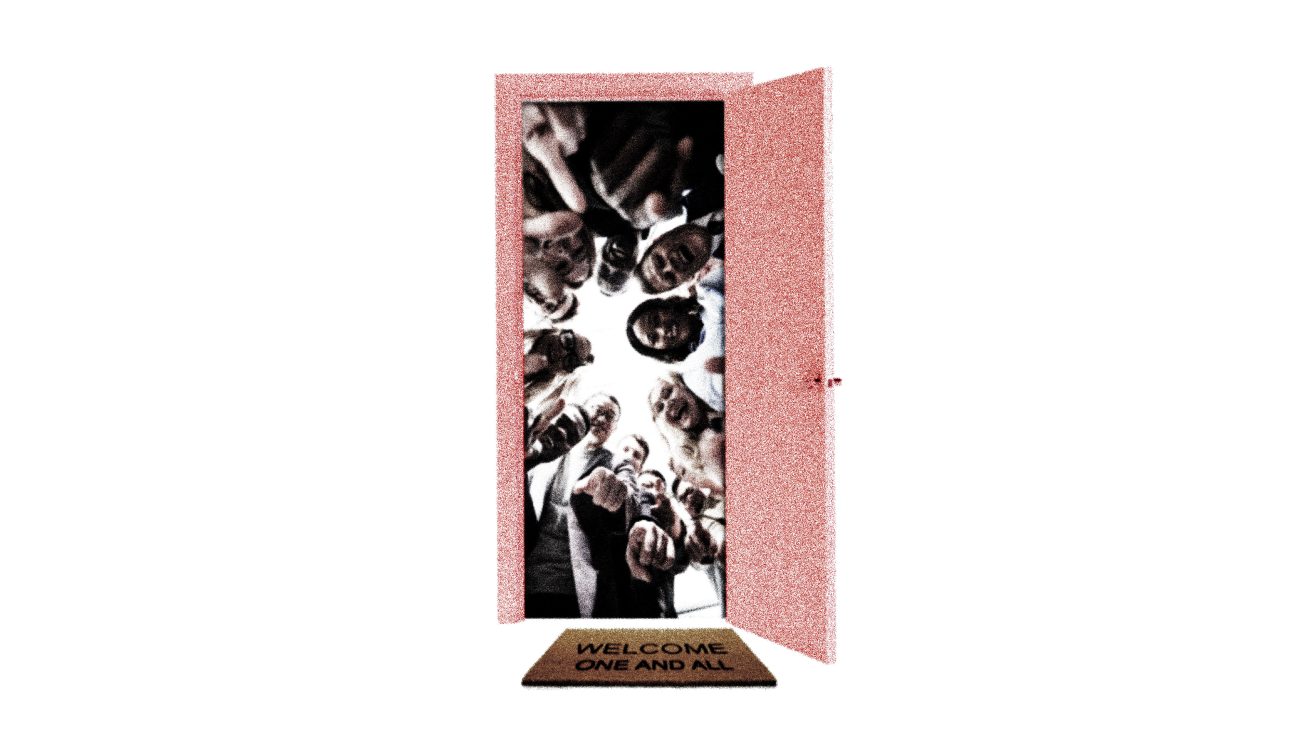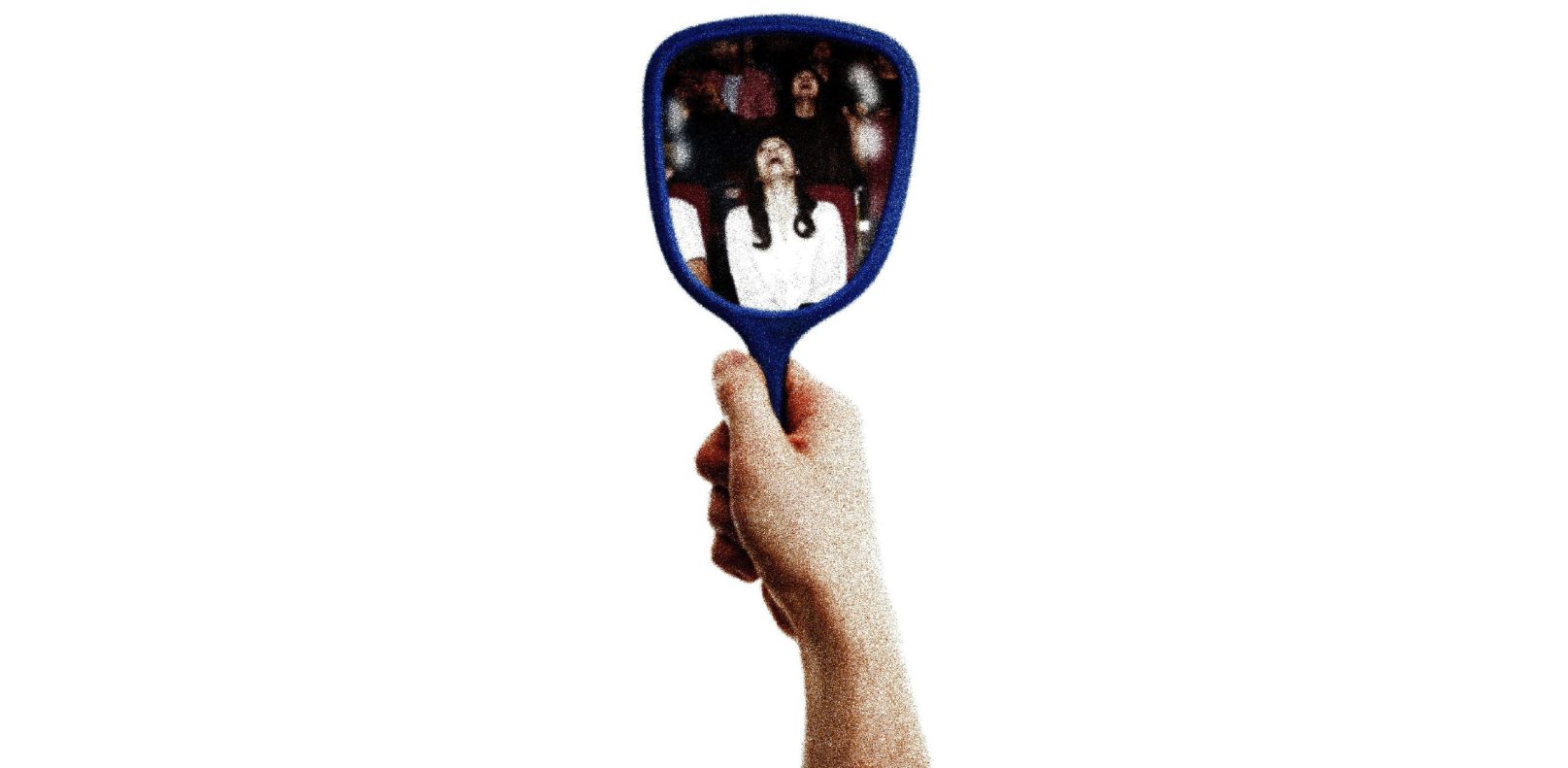It seems as though, in this day and age, the comedy scene is fighting an internal battle, grappling with difficult-to-discuss social issues such as abortion, gun rights, religion, politics, and seemingly every new election. Comedians, however, are some of the only people who have turned a blind eye to the taboo ,instead laughing at the ridiculousness within.
I met with actor-comedians David Cross and Sean Patton to discuss how comics might utilize controversial topics in their acts.
Cross got his start in comedy like most, goofing off with his friends when he was a teenager.
“[I went from] making dumb audio bits and short super 8 films to attending open mic nights at my local stand up club “The Punch Line” in Sandy Springs, Georgia when I was 17,” Cross said.
Patton grew up in the New Orleans area, first performing at a place called “AmberJacks.”

“I was young,” Patton said. “I basically dropped out of High School and followed my friends to Baton Rouge, Louisiana. I was just living in a college town, with my college friends and just living the college lifestyle, minus the college part, which I can’t recommend less. I was just like, ‘I gotta do what I want to do.’ I moved back to New Orleans, found an open mic and never looked back.”
With such solid material that Cross and Patton bring to stage every night, I spent time asking them about their writing process.
“I write 99% of my stuff onstage.” Cross said, which rather impressed me. “I bring notes up with me and then talk and find the material over time in what eventually becomes the bit. That’s just what works for me. I’m not very good at sitting down and ‘writing jokes.’”
Every comedian has a different writing process. Patton likes to write on his own beforehand.
“I sit down with a notebook and just let it come out on paper first,” Patton said. “I just freehand every thought. I find the bit in there, during that process. In the meantime, I’m just working it out on stage because that’s the key. It doesn’t matter what you write until you say it outloud. Once you say it out loud, you start to figure out the intonations, inflections and the delivery.”
In order for a comedian to connect people of different opinions, they must get the bit, the timing, and the inflections of sentences down to perfection. A comedian’s writing process is crucial to their influence over social change. Therefore, the writing process is in a sense “holy” to a comedian.
Some of their biggest idols and role models have helped shape them into the professionals they are today. For Cross, who stands at the peak of the comedy pyramid, speaks highly of his greatest influences.
“Early on I was very influenced by a mix of Monty Python, Andy Kaufman, George Carlin, Lenny Bruce, Richard Pryor and Steve Martin,” Cross said. “Then, when I got older, Bill Hicks, Steven Wright, and all of my peers. I would say I have little bits of their comedy DNA still running through my stuff. Specifically, I would say that they were all honest and found ways to use the absurd to speak to greater truths.”
When talking with Patton about his admiration for Cross and other comedians, he talked to me about the opportunities in his life that he’s gotten because of the friends and connections he’s made in the industry, such as SNL star Michael Che.
“Michael Che is an exceptional human being,” Patton said. “We, in a way, teamed up together in the New York scene. He’s one of the only people who told me he was going to help me out and did it. Michael told me years ago he wanted to help me produce my first special. It’s Michael that made that happen. If anything, he’s more of an influence on me to remember that, and if I’m ever in the situation to do that myself, I would, in no doubt, do it.”
Currently on the road, touring the United States, Cross and Patton have grown a friendship revolving around their shared love and commitment to comedy, Cross serving as the perfect mentor for Patton.
“Sean and I have grown close on this tour, it’s almost impossible not to!” Cross mentioned. “I know him from around the comedy scene here in NY and have always liked him and loved his stand-up. I thought he would be a great opener for the show and an even better hang. I was correct on both counts.”
Cross and Patton have teamed up to fight the aggression of social change with laughter of comedy.
Patton had only thrilling things to say about a childhood looking up to the infamous David Cross.
“Here’s the thing, David Cross is one of my idols,” Patton said. “He came through New Orleans back in 2002. I ended up backstage, hanging out with the band that opened for him. I didn’t know he was still in the building, and he comes walking backstage and I just gushed out. I said ‘one day, I’m gonna work with you, one day.’ He said ‘I’ll remember that.’ It’s crazy because it happened. It’s crazy because you ask what he’s brought to my career, shit man… he’s part of the reason I started! I think he’s hilarious. Sometimes when we’re hanging backstage I still have to be like ‘holy shit, that’s David Cross!’”
As for the deeper aspect of comedy which Cross and Patton are taking major roles in, I was intrigued to question them about comedy’s role of social change in the modern day world.
“I think,” Cross begins. “Well, I know that comedy in any and every form can play a large role in social change. Just look at what Voltaire and Swift were able to do!”
Patton disagrees with the newfound notion that comedians need to “save us.”
“That is not our place,” Patton said. “We are comedians, that is what we are. I just don’t think comedy should be looked at like scripture. We are pointing out the absurdity of life. We are holding a mirror against society. I like to say I am exposing my flaws, and if you can laugh at mine then maybe you will have an easier time accepting yours.”

Comedy holds importance in our society as it keeps growing and the world keeps becoming more complex. The more divided our society gets, the more comedy can do to connect us back together. We shouldn’t rely on comedy to bring about social change, but instead look to it for the laughs because, at the end of the day, we are all flawed humans. Comedy may inspire social change, but it should not be relied on for social change.
“I feel like comedy is insanely important.” Patton added on. “You have to remind people be able to laugh at the tough times and the things you do or don’t agree with.”
Patton and Cross have gotten into a smooth routine of slapping social change and comedy in a giant mixer and blending them together until the ingredients make something sweet. But as for some deeper, older, and more rooted topics, like religion, I asked Cross how he came about writing a show that was heavily influenced by joking about the absurdities of some religious aspects.
“I’ve always been fascinated with organized religion since I was very young,” Cross said. “I was raised Jewish, but realized I was an atheist, before I knew that there was a term for it, when I was around 12 or 13. I grew up in a Southern Baptist community and I just thought it was so ridiculous. The Old Testament that was taught to me seemed to be such obvious bullshit that was clearly made up thousands of years ago to explain the unexplainable. It all seems so silly now in this modern era, kind-of like the idea of Royalty, just old, antiquated notions.”
Cross has created a great segment in his newest show highlighting some religious characteristics many people haven’t thought twice about. When Cross exits the stage after his final bit on drowning a young Jesus, you walk away from the show questioning a lot about society, the laws we are signing in, forced religious perspectives, rights that are being taken away, and what it truly means to be a human and to be flawed.
Since comedy can take something so serious, like social change, and make all audience members connect through laughter, I wondered, what can comedy teach students at VCU?
“Comedy is, truthfully, the art of humanity.” Patton voiced. “The biggest thing that comedy has that a lot of other art forms don’t hold to the same importance is connection,” Patton voiced “Connection is necessary. You could be a 50-year old straight man and the comedian on stage could be a 28 year old lesbian, but you could still connect with that person even though you’re different. Through experiences, through point of view, through perspectives. That’s the beauty of it. When you find someone who is in a completely different demographic, but they laugh with you because of something you’re saying, that is beautiful, and it brings us closer as people. That is what the art of comedy is. That is something any aspiring artist or student can learn from. This is about connection and it’s a human art.”


